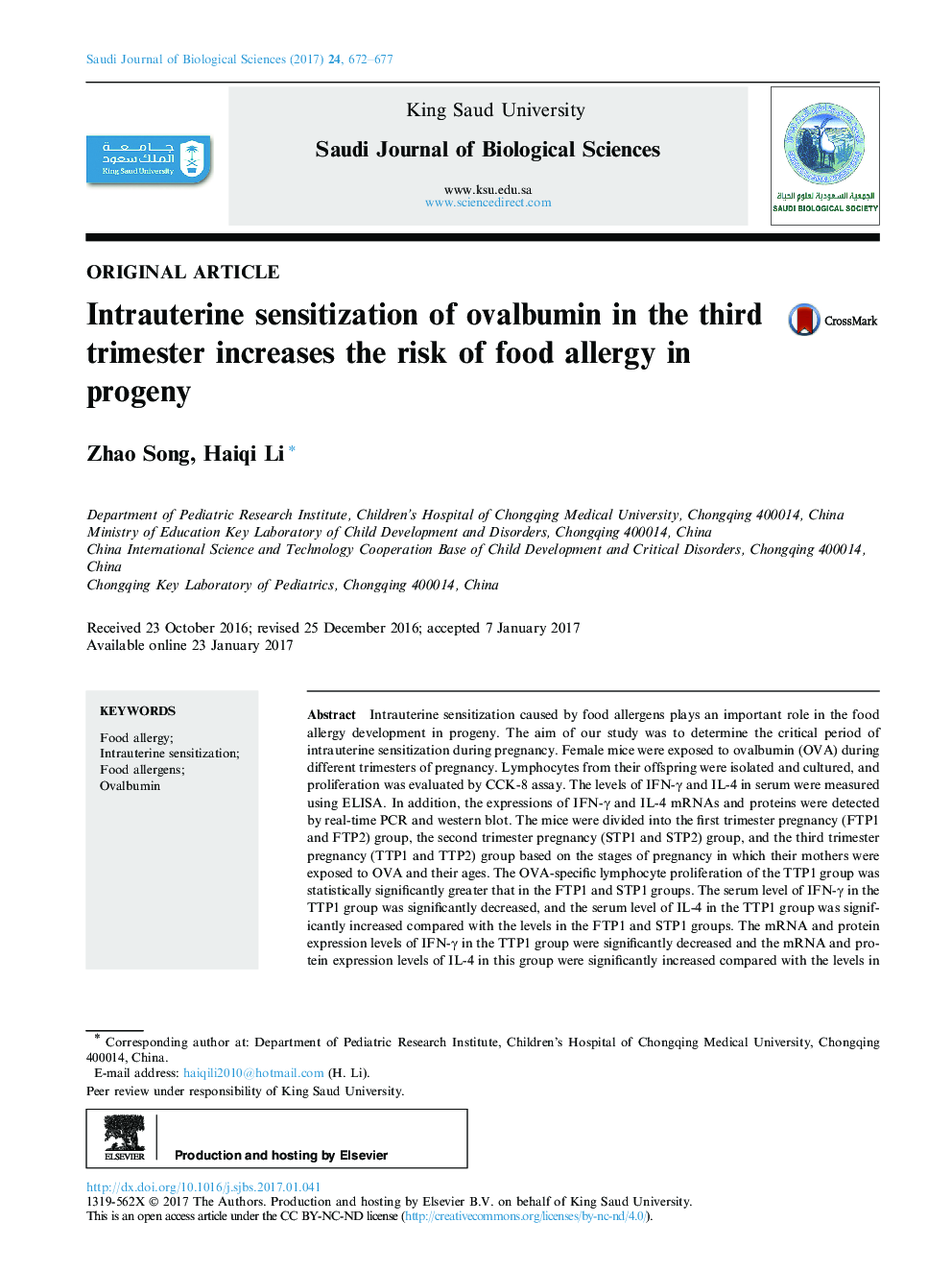| کد مقاله | کد نشریه | سال انتشار | مقاله انگلیسی | نسخه تمام متن |
|---|---|---|---|---|
| 5745593 | 1618666 | 2017 | 6 صفحه PDF | دانلود رایگان |
Intrauterine sensitization caused by food allergens plays an important role in the food allergy development in progeny. The aim of our study was to determine the critical period of intrauterine sensitization during pregnancy. Female mice were exposed to ovalbumin (OVA) during different trimesters of pregnancy. Lymphocytes from their offspring were isolated and cultured, and proliferation was evaluated by CCK-8 assay. The levels of IFN-γ and IL-4 in serum were measured using ELISA. In addition, the expressions of IFN-γ and IL-4 mRNAs and proteins were detected by real-time PCR and western blot. The mice were divided into the first trimester pregnancy (FTP1 and FTP2) group, the second trimester pregnancy (STP1 and STP2) group, and the third trimester pregnancy (TTP1 and TTP2) group based on the stages of pregnancy in which their mothers were exposed to OVA and their ages. The OVA-specific lymphocyte proliferation of the TTP1 group was statistically significantly greater that in the FTP1 and STP1 groups. The serum level of IFN-γ in the TTP1 group was significantly decreased, and the serum level of IL-4 in the TTP1 group was significantly increased compared with the levels in the FTP1 and STP1 groups. The mRNA and protein expression levels of IFN-γ in the TTP1 group were significantly decreased and the mRNA and protein expression levels of IL-4 in this group were significantly increased compared with the levels in the FTP1 and STP1 groups. Our results suggest that OVA-induced intrauterine sensitization in the third trimester may increase the risk of food allergy after birth.
Journal: Saudi Journal of Biological Sciences - Volume 24, Issue 3, March 2017, Pages 672-677
